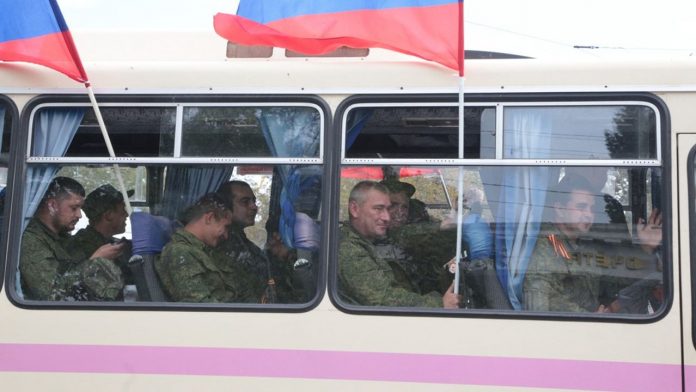Posted Sep 30, 2022 10:58 AMUpdated on Sep 30, 2022 at 1:23 p.m.
“I had four male managers. Two have received their military convocation. Two took the lead and fled. Net result: none are at work…” Among many others, this business leader in Moscow wonders about the economic misdeeds of the “special operation” in Ukraine, a week after the announcement by Vladimir Putin of the “partial mobilization”, according to the two understatements of the head of the Kremlin.
Before the concert, the fireworks and other festivities planned for this Friday evening in Red Square, the president must deliver a speech to parliamentarians. To formalize the attachment of the Ukrainian regions of Lugansk and Donetsk (in the East) and Kherson and Zaporijjia (in the South). No doubt also to announce a new stage in the military escalation: the “special operation” could become the “anti-terrorist operation”, a notch below the declaration of war.
Telecommuting in the countryside
Far from military speeches and threats of recourse to nuclear strikes, business leaders are above all their heads in the grindstone. Entrusted to the regions, the “partial” military mobilization turned into generalized administrative disorganization. Regional governors are getting calls from local bosses asking for exemptions and waivers for their staff. Everything is negotiated on a case-by-case basis. But the problem is global: in one week, at least 300,000 men were mobilized and to escape enlistment, some 260,000 others would have left Russia. That is half a million workers now missing from the economy.
In reality, the situations are very variable. The bleeding has been particularly strong in the technology sector. But young computer scientists who fled abroad continue to work remotely. In other sectors, teleworking has also spread to the countryside: managers have left their homes and do not show up at the office, so as not to formally receive a military summons. Hidden in their dacha, they continue to fulfill their professional duties. This is not possible for manual trades. Many store chains, including among the French brands still present in Russia, are struggling to maintain their rates: several handlers have left. Auchan thus saw 2,300 of its employees mobilized.
Further contraction of 0.5% of GDP
Due to this labor shortage, which should lead to a parallel drop in domestic demand, military mobilization could cut growth by 0.5 points this year, according to a survey of economists carried out by Bloomberg. The agriculture and construction sectors will be among the hardest hit as the majority of conscripts come from rural and poor areas.
For the moment, no official figures have been published. But some signs are unmistakable. In Moscow, many billboards, in the street as well as in the metro, are now covered with portraits of soldiers celebrated as “heroes”. It is a question of displaying military propaganda to passers-by. But also to plug the holes: latent, the economic crisis is already being felt and real commercial advertising is becoming increasingly rare.
VIDEO. “Stuffing”, “masquerade”: strong criticism after the “referendums” of annexation in Ukraine
What benchmarks in a constantly changing world?
Political uncertainties, scientific innovations, war in Ukraine, energy and ecological transition… How to understand these changes? How to position yourself? Every day, the 200 journalists from the “Echos” editorial staff help you decipher economic, political and international news through surveys, analyses, press reviews, chronicles and editorials. Our subscribers know that they can rely on these resources to better navigate our complex environment and make the best strategic decisions.













